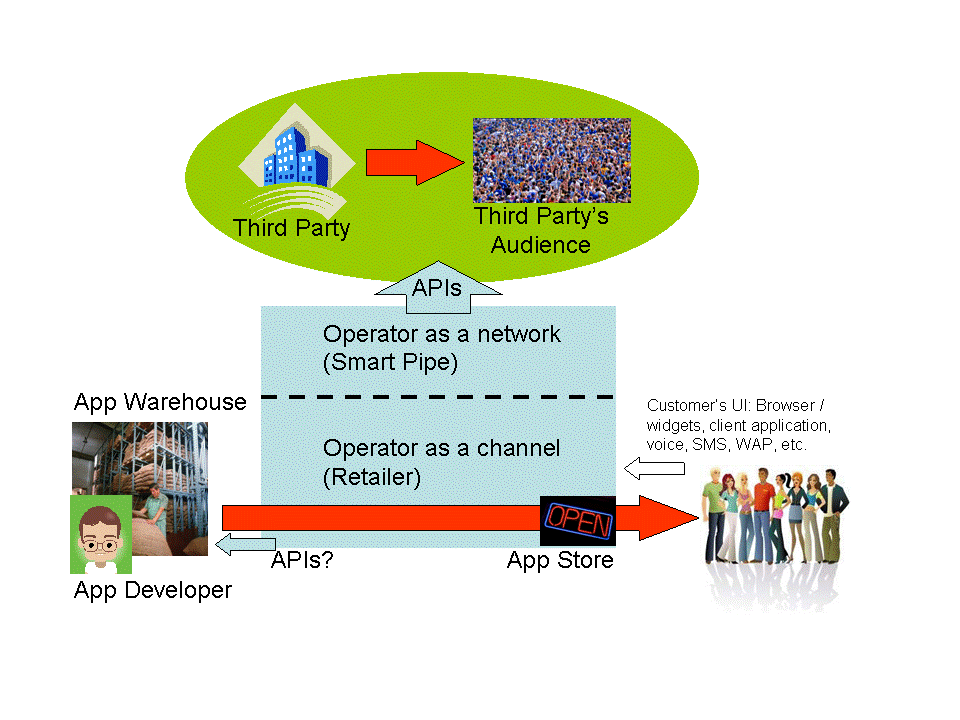Network APIs do not require a developer community. Its just an API: publish, provide code examples, define the process on how a third party can access the API, and you’re done.
Network APIs are not necessary for an operator’s App Store. For example operators have been selling content and apps on their portals for years, its a $71B business. APIs can make some apps cooler, easier to use, contextually relevant; but the two are not dependent, i.e. an operator can offer APIs without an App Store, and can have an App Store without APIs.
Developers are not a homogeneous group, they have a multitude of needs and business models. They varying from geeky individuals to global enterprises. Operators must think about a broader category of “Third Parties” when they examine customers of their APIs. Examples include:
- Enterprises (e.g. where an enterprise’s IT developer may want to use presence for their corporate communications);
- Trusted third parties (e.g. local SIs that can use the APIs for the solutions to their SMB (Small Medium Business) customers);
- Trusted third parties that can help operators work better (e.g. someone helping T-Mobile analyze their customer data to they finally start treating me as a customer not a credit card to be billed monthly);
- Content owners that can use APIs to make their audience relationship stronger (e.g. Real Madrid giving up on email and now using SMS to great effect); and
- Developers / service providers who need a channel to market through the operator or web-based developers / service providers who have their own channel.
Developer communities are necessary for OS platforms, e.g. Java development community or the Apple iPhone developer community. Operators do not need a developer community, they need an ingestion process to get stuff into their stores, and they need a simple process to get third parties approved to use their APIs – these two processes are different. It makes a lot of sense for the developer communities (e.g. Java) to also act as warehouse, making it much easier to retailers (e.g. operators, Amazon.com, etc.) and developers to have a single point to remove the critical barrier of approval expenses – we’re taking about 1000s of approvals being removed per app.
Widgets are just a bookmark with the logic preloaded, data is loaded at the point of execution. They run in a browser. It is not a business model, its not revolutionary, its just making things better given the vagaries of internet connectivity over mobile networks. Think of it like WAP (but its not crap), it makes it easier for customers to use web services on their phone. Voice, SMS, WAP, and the web browser are equally useful interfaces for accessing services depending on the device, the application, and the customer.
I show below in a single diagram the two faces of the operator as a network, and as a channel to market. And linking that to APIs, Developer Communities, Developers, Third Parties, App Stores, App Warehouses, and Widgets.

More information for Open API Services of Alcatel-Lucent, please check
http://developer.openapiservice.com/